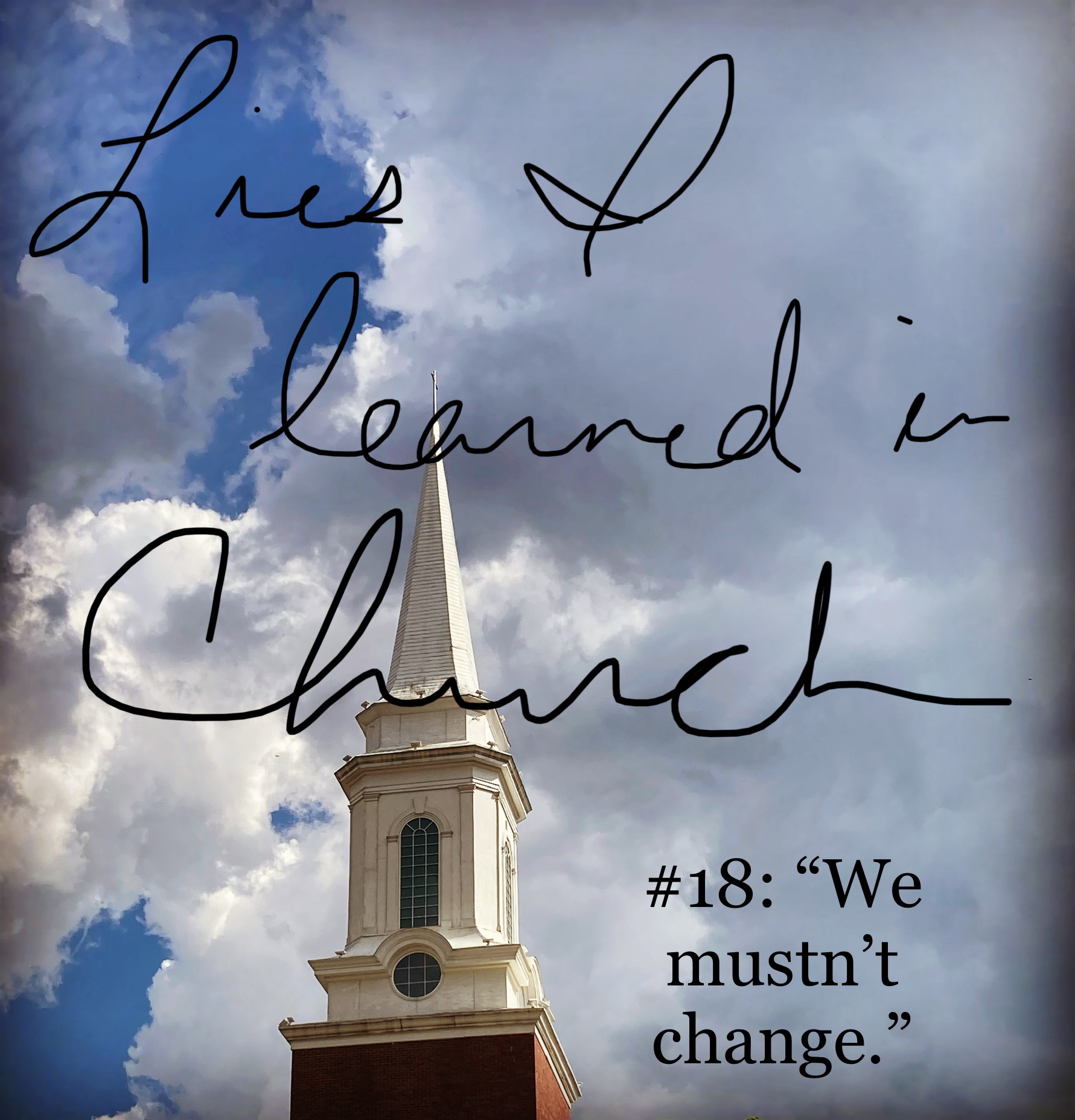Lie #18 – We Mustn’t Change


from Helena Sorenson Aman:
Lie #18: “We mustn’t change.”
I remember a sermon I heard as an adolescent, on the topic of soldiers who “stayed by the stuff” during some Old Testament battle or other. They were described with reverence, those men who refused to move from the little scrap of land where they’d made their camp. Actually, now I come to think of it, it could have been a sermon about homemakers. But whatever. The point is that this is a concrete example, one of thousands of overt and covert messages I received that “staying where you are” was the ideal Christian stance. To move from the ground of your faith (and everything that went with it, within your denomination and your church and so on–a little, teensy scrap of land) was disgraceful. You had received the whole truth at the moment you entered the faith/church/denomination, and your life’s work was to hunker down and snarl at anything that came too close.
(Is it any wonder we find ourselves lacking in mentors and elders? We created communities where no one was allowed to grow.)
If you were raised in a fundamentalist church, you might be thinking, “We changed!” But stop for a minute. We’re talking about environments so rigidly controlled that a slight alteration in dress code could cause major disruption. Raise your hand if you’ve heard stories of churches that have split over the issue of carpet color or music preference. Y’all. *shakes head in befuddlement*
The lie that we mustn’t change is on full display these days. People are leaving the church in hordes, and the ones who “stay by the stuff” are accusing them of being lazy and self-centered and reprobate, of caving to political pressure, of lacking commitment to God. How absurd! If something has been done a certain way during our lifetime and our parents’ lifetime, we assume, it’s the old way. And the old way is always the right way. If a lie (mistake/bias/limited perspective) has persisted for fifty or five hundred years, we assume, it’s the truth, and the real danger is what these young’ns are doing in 2022.
I see this thinking in the rejection of new terminology for and conversations around faith and culture. But new language is not about rejecting the underlying truth. Most often it is a whole-hearted attempt to receive that truth without its toxic associations. People are looking for something *more* real, more true, more beautiful than the Christianity they’ve inherited. We’re eighteen lies in, folks. Is it any wonder?




